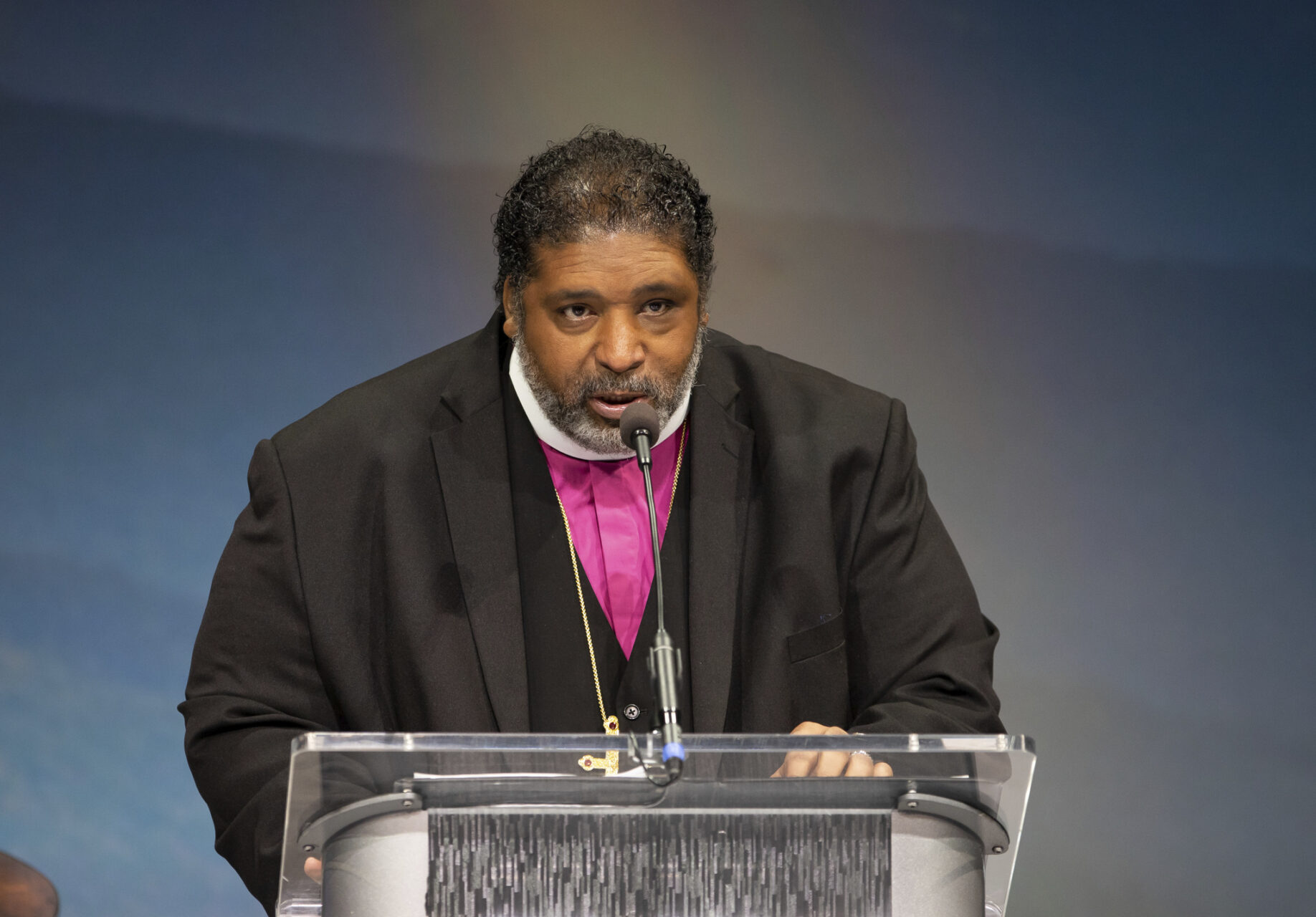
Protestant minister and social advocate William Barber II encouraged all people to come together for a “moral revival” resulting in policies to care for poor and low-income communities during the Nov. 30 BYU forum address.
Barber fights for living wages, racial equality and universal health care. He said he does not identify solely as a conservative or liberal, but as both. “I want to conserve the great teachings of Jesus about love, grace, truth and justice and I want to liberally spread them everywhere.”
Barber compared the “moral revival” he hopes will spread through America to a defibrillator shocking a heart back to life.
“And today, only a revolution of the heart can save and revive this democracy and move us towards the loving community because some issues, my brothers and sisters, are not left versus right or Democrat versus Republican, but it’s right versus wrong,” Barber said.
Barber said 43% of the nation is poor or low-income and the COVID-19 pandemic has only exacerbated the issue of poverty. He said in Utah a person must work 101 hours a week at a minimum wage job to afford a two-bedroom apartment.
When it comes to creating policies to help create a better living wage and universal health care, Barber said people are asking the wrong question.
“How much will it cost to do this? Rather than asking the truly moral question, how much will it cost us not to,” Barber said.
During the pandemic “service workers” began to be regarded as “essential workers.” Low-income essential workers are the first to come to work, the first to get sick, and the first to die, “so that the rest of us could have some sense of normalcy in the midst of all of this,” Barber said.
Essential workers are being regarded as disposable, Barber added. He said those who have survived the pandemic thus far should not ask, “Why are you still here, but what are you going to do with your continuing reality?”
Of the 25 wealthiest countries in the world, Barber said only one doesn’t offer some form of universal health care ― the United States. “This is why we must face this crisis and put a face to the crisis,” he said.




